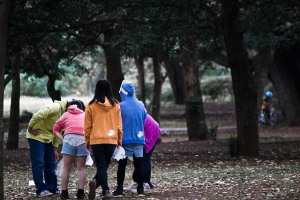 For kids, summer camp is a great opportunity to learn new skills, meet new people, experience exciting new things, and, most importantly, have a lot of fun. But sending your child away for a few weeks comes with its own risks. Here are some tips for ensuring your child stays safe while away at summer camp.
For kids, summer camp is a great opportunity to learn new skills, meet new people, experience exciting new things, and, most importantly, have a lot of fun. But sending your child away for a few weeks comes with its own risks. Here are some tips for ensuring your child stays safe while away at summer camp.
Know how to spot a bad summer camp
This first step to making sure your child has a fun, safe time away at camp is to send them to a good camp. Not all summer camps are created equal, and you should know some of the red flags associated with sub-quality camps.
The first red flag is that the camp doesn’t seem to have much of a presence. There is nobody talking about the camp online and no parents willing to sing its praises. Good camps will be known as just that – good camps. A low profile camp isn’t necessarily a bad one, but it should give you pause. Another red flag involves the staff. Ask about turnover. Does the camp lose and hire camp counselors every single season? Are there no long-term employees at the camp? This could signal that the camp is run poorly.
Lastly, any camp that is not completely open to you, the parent, is likely hiding something. If you get any pushback about wanting to visit the camp for a complete tour before giving them your money, or the camp has a closed-door policy where you must schedule an appointment to visit, be very wary.
Prepare them to make the right choices
One of the biggest fears the parents have when it comes to sending their child away to spend time with peers outside their supervision is that their child will get involved in drugs and alcohol. The best thing you can do is to talk to your child in a frank, honest, and non-judgmental way so that they at least have your voice in their head urging them to make good choices if the temptation arises.
Even if you, to some degree, accept that kids will experiment (we were all kids once!), you have to set firm boundaries. Teach them about the dangers of even experimenting with drugs and alcohol.
“Talking about ‘experimentation’ tends to be a very slippery slope. Parents have one idea about what it means, and kids have another idea about what it means. And some kids who get the idea that experimentation is okay will rationalize any kind of drinking that they’re doing as experimentation,” notes ChildMind.org. With this in mind, it’s best to just put a hardline “no” on any sort of experimentation.
Involve them in the camp-decision process
These days, there are hundreds of summer camp options. Many of them specialize in certain fields, activities, or sports. Talk to your child. If they have a strong a specific interest in something, a specialty camp may be the best choice. If not, a general interest camp is likely the way to go. You certainly don’t want to force your child to go to a camp that doesn’t interest them in order to try to force it on them.
Ask them if they are comfortable with a sleepaway camp or if they’d rather come home at night. You can certainly encourage them to be brave and face any fears they may harbor – but certainly don’t force the issue. That’s a recipe for an awful camp experience.
Summer camp can be a wonderful learning experience for your child. If you do the research into camps and take the time to talk to your child about making good choices, you can be assured they will have a fun, safe experience.
Photo Credit: Pixabay.com
Latest posts by Tammy (see all)
- Grandparents Raising Their Own Grandchildren – A Helpful and Healthy Resource Guide - December 6, 2021
- The Gramma In a Box Review – Ideal For Long Distance Grandma’s - November 18, 2021
- How Senior Citizens Can Network Better - November 8, 2021